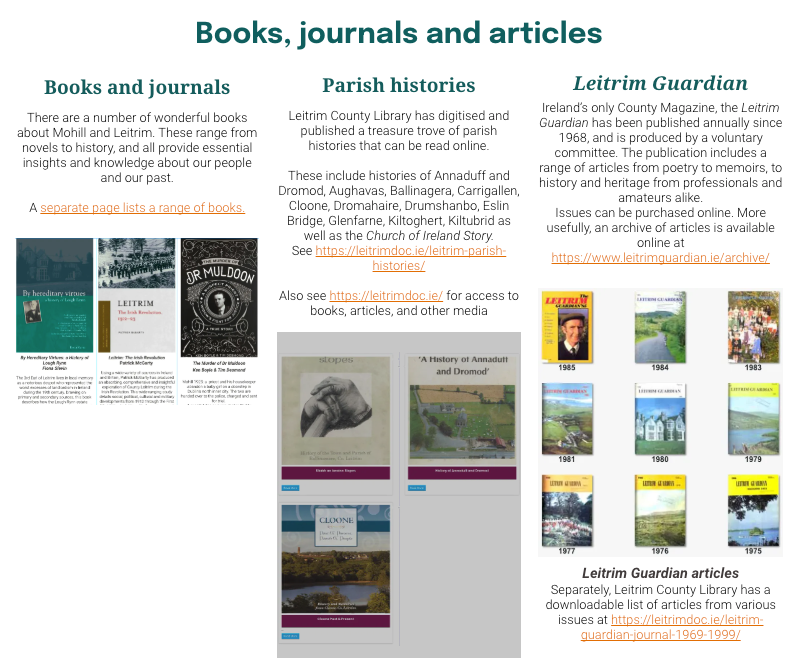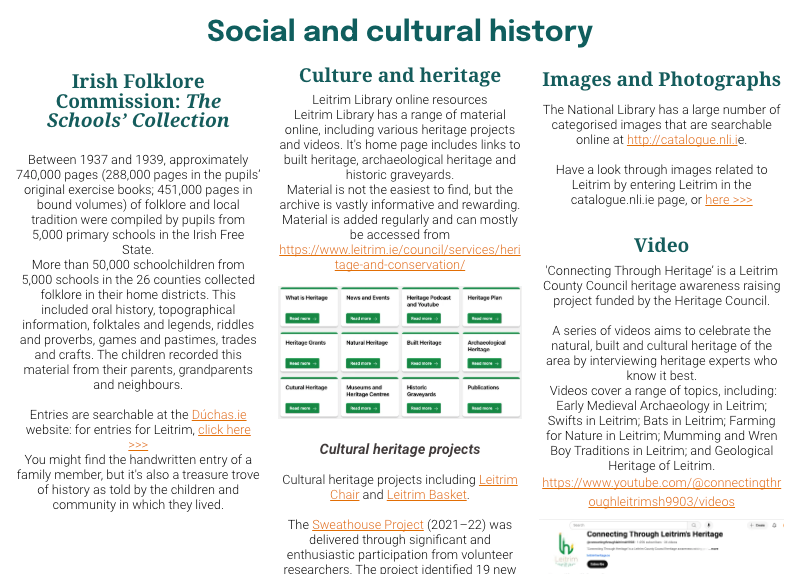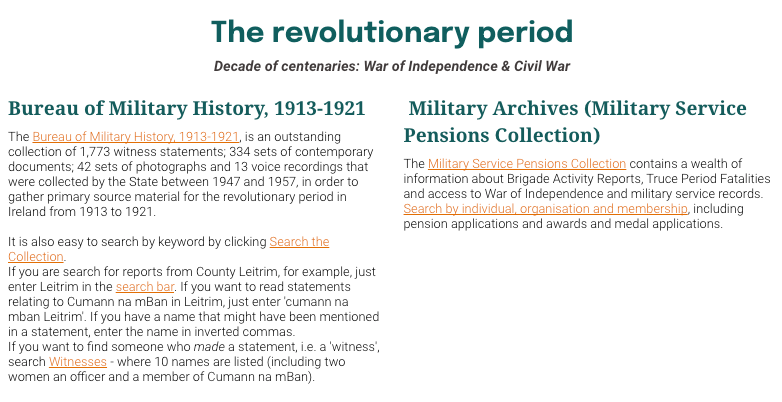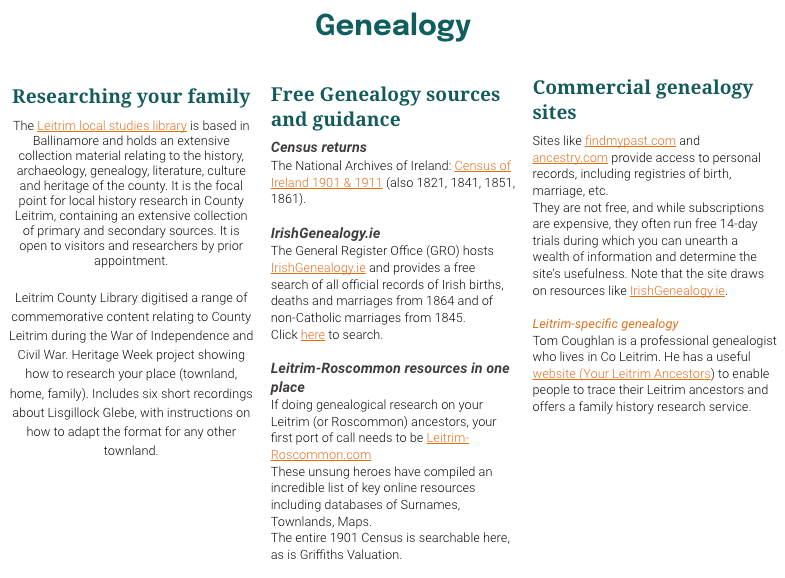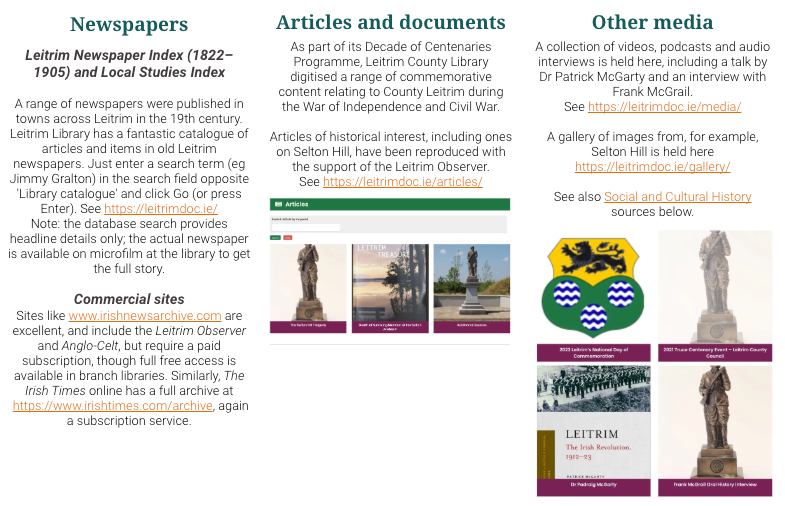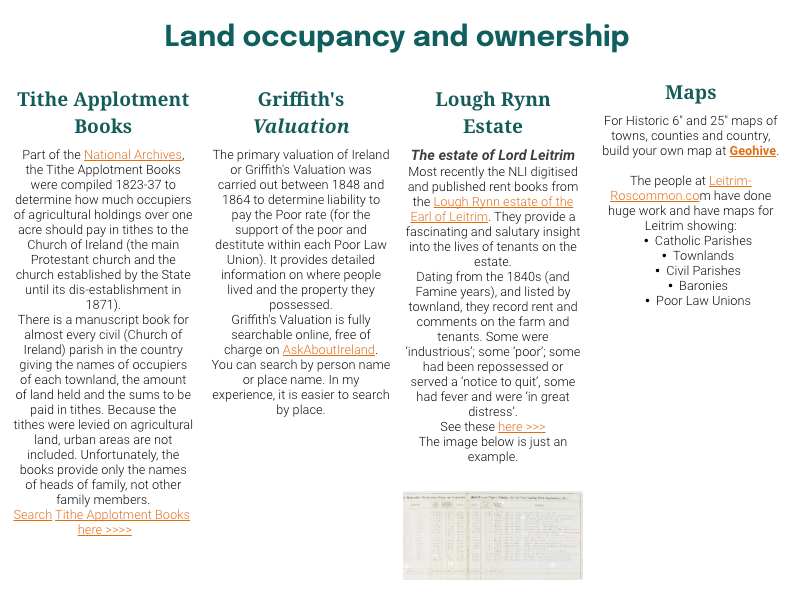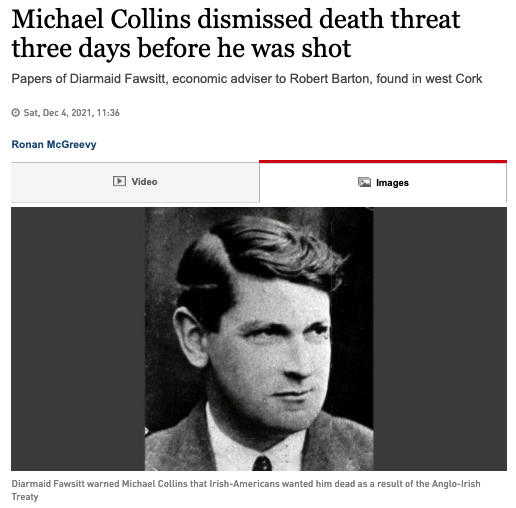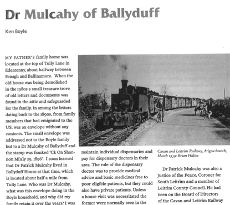YoungHistorian appreciates and acknowledges the sponsorship and support of Leitrim County Library Service through Leitrim County Council.
Guidance for Students
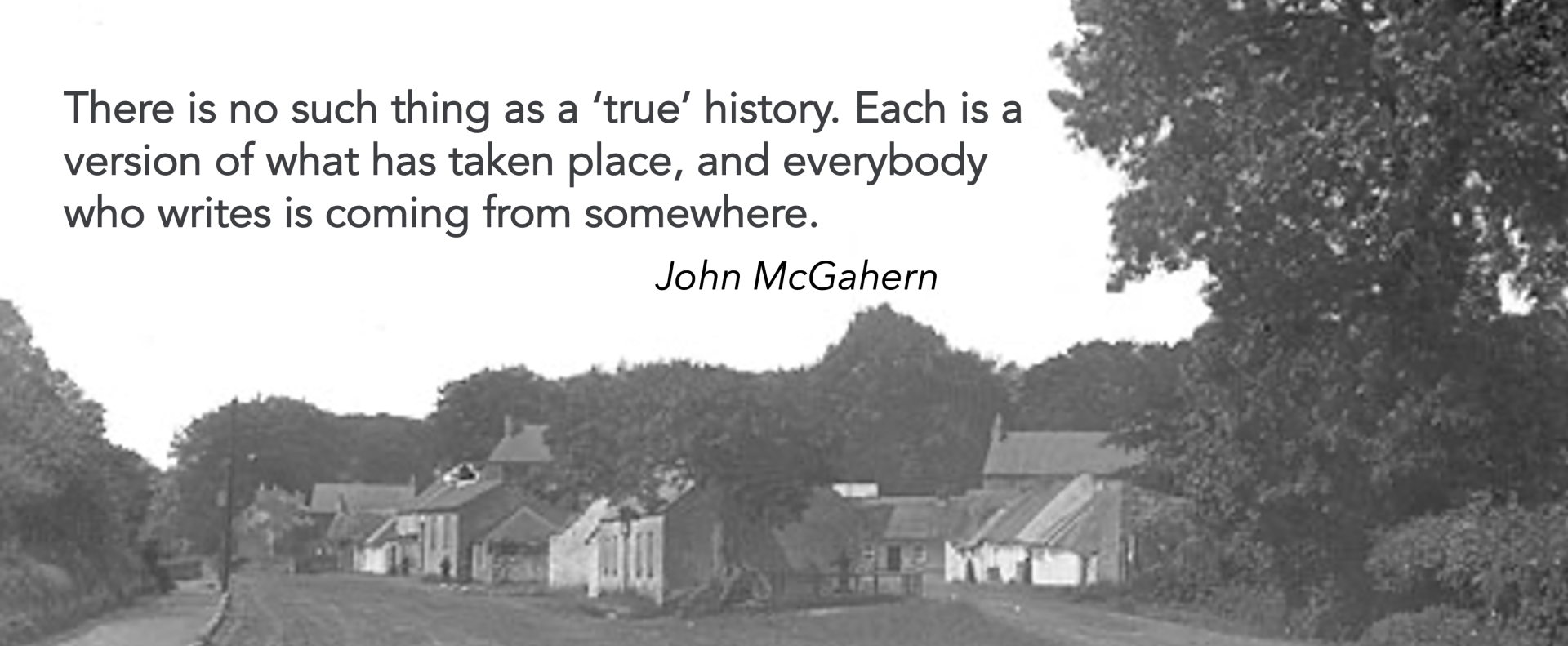
Getting started with historical research
Selecting a topic
For ideas on selecting a topic for your research, click below.
The pdf document also provides information on the programme, awards criteria and process.
UL's beginner’s guide to historical research
The University of Limerick has some useful guidance on how to interpret historical evidence through primary and secondary sources.
'Historians can never completely explain events of the past or the motivations of the individuals they study, because the evidence is always partial in some respect. They identify and interpret the evidence to determine the most likely possible explanation. As new research is carried out, new evidence is identified, or new perspectives are taken, interpretations might be refined or reassessed.'.
Research sources
A comprehensive set of primary and secondary sources for County Leitrim history is listed on www.loughrynn.net (aka http://Mohill.com), a website dedicated to the history of County Leitrim. The site includes a range of links to material held in Leitrim County Library Local Studies as well as other material.
Sources are divided into:
1. Books and published material, including digitised articles and other media
2. The revolutionary period
4. Land and land occupancy
3. Genealogy
4. Other sources of local
social and cultural history including links to video and image sources
Finding sources
The Young Historian programme is all about history on your doorstep. Even if your topic is not specifically about your family, we strongly encourage you to find a family or personal connection to the story. You should strive to use original source material: a significant proportion of points is allocated to original research, and a special award will be given for best use of archive material – which can include family records and interviews. Finding sources can mean talking to family members, finding old news clippings, discovering old artefacts - like farm implements or heirlooms. To inspire you, here are three stories about the value of searching in attics and asking previously unasked questions.
Example 1: Attic finds
A story from The Irish Times about how the Fawsitt family found a historical treasure trove in the loft of an old farmhouse in Manch, west Cork
The most significant find was a typed letter from Michael Collins sent from IRA general headquarters on August 19th, 1922, just three days before he was shot dead at Beal na Bláth.
Example 2: Attic finds
Ken Boyle writes about how discoveries at his family home led to his book about the murder of
Dr Muldoon, as well as his research on
Dr Mulcahy of Ballyduff. The article on Dr Mulcahy was published in the
Leitrim Guardian 2021.
Example 3: Attic finds
Fiona Slevin's research on Mohill was helped enormously when a local person unearthed an account book for a local shop, dating back to 1872.
This is a unique, very rare and invaluable resource for historians.
If you find something like this, first - mind it! – and please do let us know by using the contact form below.

